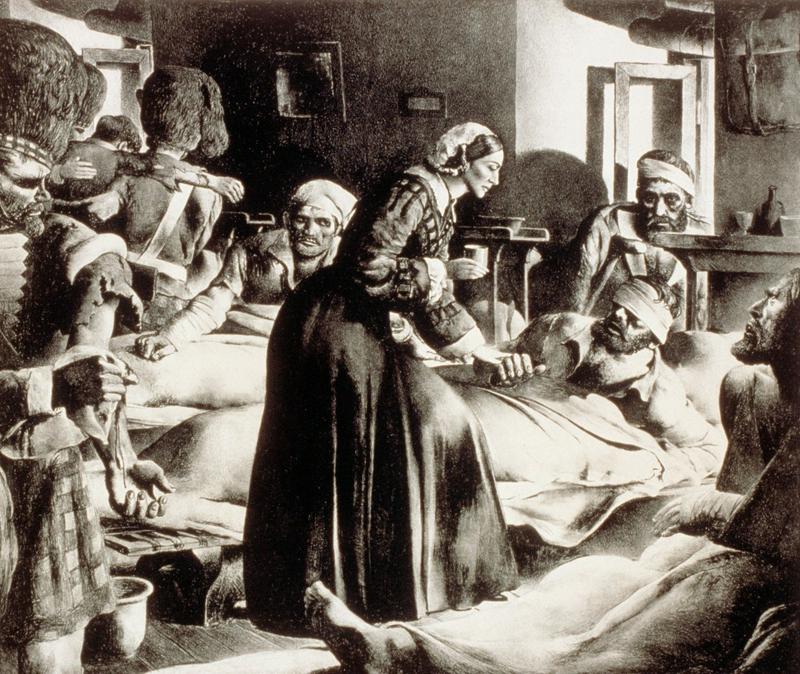Florence Nightingale - The Lady With The Lamp
By | December 28, 2018

Florence Nightingale was born in Florence, Italy in 1820, of British heritage. She was a nurse and social reformer, as well as a brilliant statistician. Nightingale is known as the “Lady With The Lamp” because she spent many hours during the night checking on her patients. She is the pioneer of modern nursing. These accomplishments are incredible, considering she was born during Victorian times when women did not normally attend universities or aspire to become a professional. Her father, William Nightingale, believed all people deserved an education. Florence and her sister learned Italian, Latin, history and math. Florence spent a year in an unpaid role as a “gentlewoman during illness.” In 1854, the British Secretary of War recruited Nightingale plus thirty-eight other nurses for service during the Crimean War.
Florence Nightingale was known as the “Lady With The Lamp”

Florence Nightingale and The Crimean War
Britain was at war with Russia. When Nightingale arrived in Turkey with the other nurses, she saw the horrific conditions of the hospitals. Hundreds of soldiers were injured during battle. Nightingale realized that the wounded were sleeping in crowded dirty rooms with no blankets. These soldiers often arrived diseased, carrying cholera and dysentery. Most of these soldiers died from these illnesses rather than war injuries.

Florence Nightingale Made a Difference
The Army doctors at the hospital initially did not welcome the nurses. They held the opinion of the times that women were not capable of such meaningful work. That opinion changed rather quickly, as the battles produced large quantities of wounded soldiers and the doctors could not keep up. Nightingale understood that she and the other nurses would have to do excellent work in order for the doctors to allow them to help.
The first thing Nightingale focused on was the sanitary conditions of the hospital. She was the person responsible for associating deplorable and filthy conditions with infection and unnecessary illnesses. Nightingale also created a hospital kitchen which would make nutritious food for the sick, established a laundry facility so that patients would have clean linens and gowns.
Florence Nightingale made sure that patients had an intellectual outlet so she added a library and provided entertainment. This work reduced the death rate by over two-thirds! She kept meticulous notes and turned in an 830-page report entitled, “Notes On Matters Affecting The Health, Efficiency, and Hospital Administration Of The British Army." This report sparked the establishment of a Royal Commission for the Health of the Army.

Florence Nightingale – After The War
When Florence Nightingale returned home to Britain, she was shocked to receive a hero’s welcome! She tried to avoid the spotlight, however, Queen Victoria awarded Nightingale with an engraved brooch and 250,000 Pounds! Nightingale used this money to establish the St. Thomas Hospital and the Nightingale Training School for Nurses.

Florence Nightingale’s Legacy
Nightingale wrote a book entitled, Notes On Nursing. Her gentle and sensible approach to caregiving is still used in nursing today. The example she set has inspired nurses around the world. There is a Nightingale Award given to outstanding nurses and nurse’s aides who show courage and devotion to the sick and disabled. International Nurses Day is observed on her birthday, May 12.
Florence Nightingale Medal Of Honor

Florence Nightingale left an unmatched legacy both personally and professionally. Nurses all over the world are proud to earn the Florence Nightingale Medal of Honor. This is known as the highest distinction and recognition a nurse can receive.

